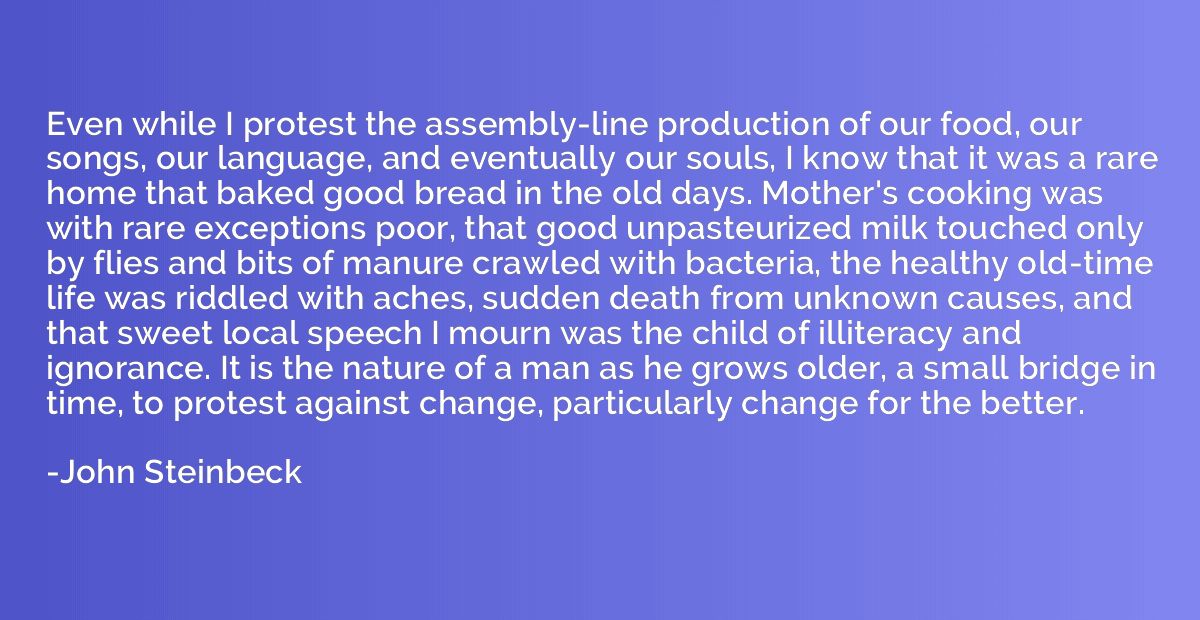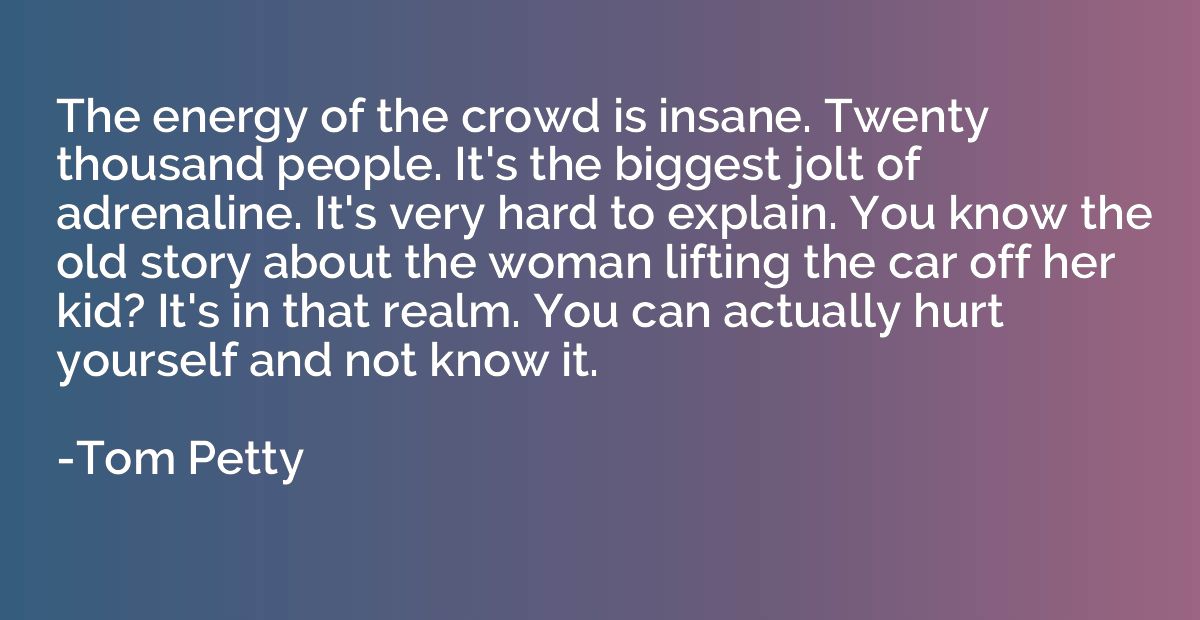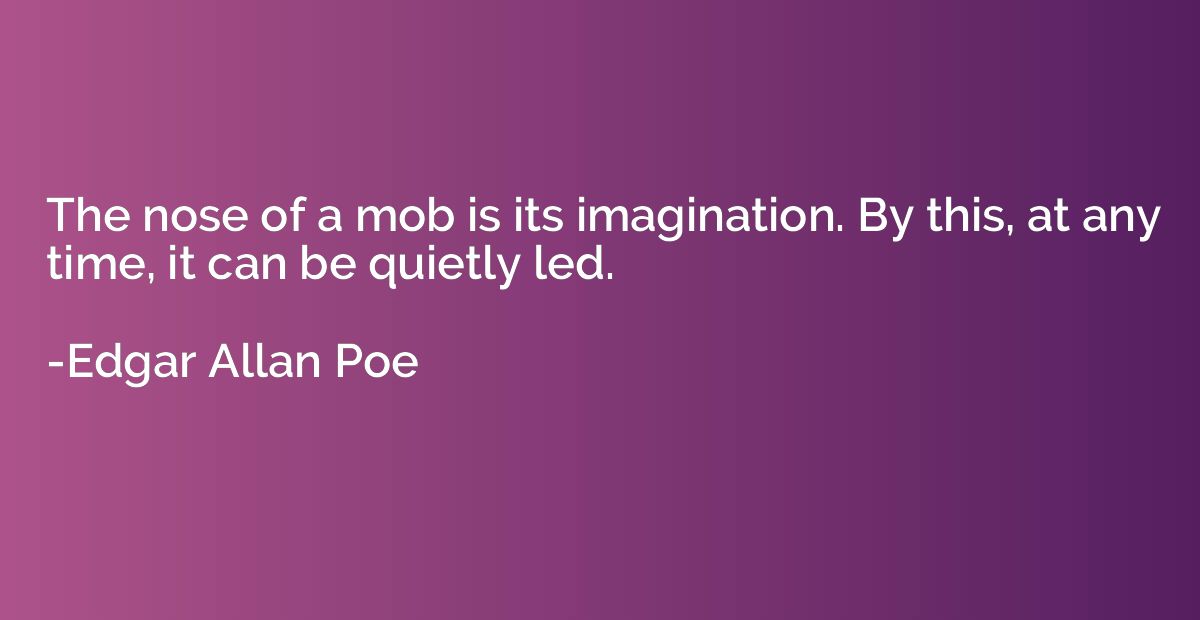Quote by John Steinbeck
Even while I protest the assembly-line production of our food, our songs, our language, and eventually our souls, I know that it was a rare home that baked good bread in the old days. Mother's cooking was with rare exceptions poor, that good unpasteurized milk touched only by flies and bits of manure crawled with bacteria, the healthy old-time life was riddled with aches, sudden death from unknown causes, and that sweet local speech I mourn was the child of illiteracy and ignorance. It is the nature of a man as he grows older, a small bridge in time, to protest against change, particularly change for the better.

Summary
In this quote, the speaker acknowledges their opposition to the industrialization and standardization of various aspects of life such as food, music, language, and culture. However, they also recognize that the romanticized past was not as idyllic as they imagine. The quality of food, the health risks associated with unpasteurized milk, the struggles of the old-time life, and the limitations of local dialects all highlight the drawbacks of the past. The speaker suggests that, as people age, they tend to resist change, even if it brings improvements, revealing the complex and contradictory nature of human resistance to progress.














